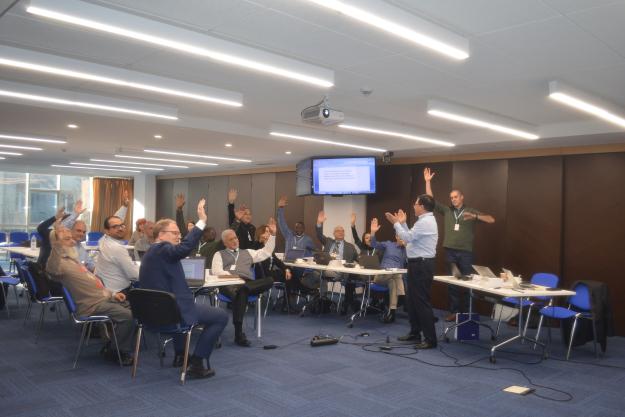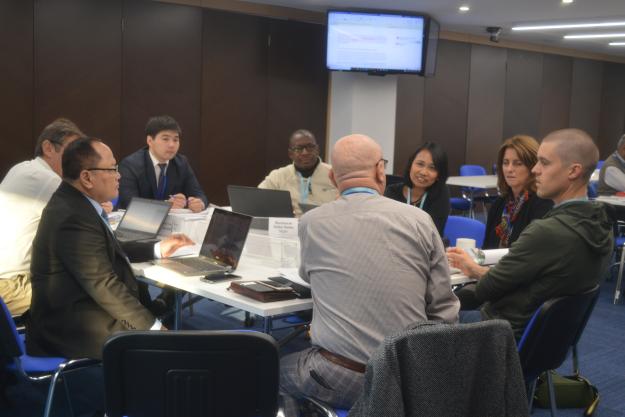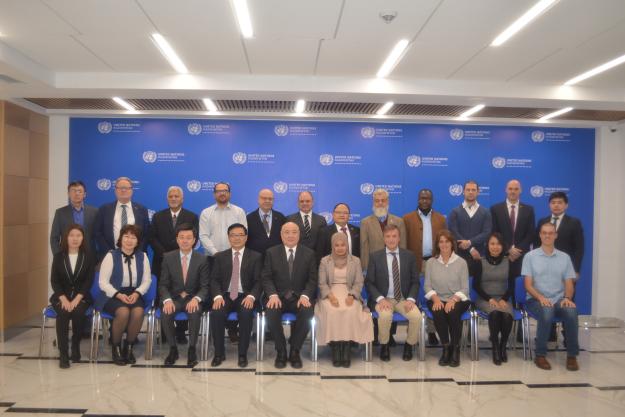
Participants at the Workshop on Developing Tools for Chemical Safety and Security
THE HAGUE, Netherlands — 6 December 2019 — The Organisation for the Prohibition of Chemical Weapons (OPCW), in collaboration with the Government of Kazakhstan, organised a second edition of the Workshop on Developing Tools for Chemical Safety and Security held from 2 to 6 December at Almaty in Kazakhstan.
In his opening remarks, Mr Dastan Yeleukenov, Director of the Department of International Security, Ministry of Foreign Affairs, highlighted “Kazakhstan is strongly committed to continuing our efforts to mitigate chemical weapons threats, enhancing chemical security and improving the coordination of chemical security threat reduction programmes and activities across the globe.”
Ms Halimatussaadiah Mat Som, Programme Officer of the OPCW’s International Cooperation Branch emphasised the importance of promoting chemical safety and security for the industry. She added that the OPCW will intensify its efforts in this regard by facilitating the development of norms and exchanging best practices in future capacity-building programmes.

The workshop provided a platform for cross sector partnership in chemical safety and security management for the chemical industry. Participants drafted standards on chemical safety and security included in a set of non-binding guidelines.
Over 21 experts from the following OPCW Member States were in attendance: Algeria, Argentina, Brazil, China, Germany, Indonesia, Italy, Kazakhstan, Kenya, Malaysia, Niger, Pakistan, Philippines, Spain, and the United States of America. Representatives of the following international organisation attended the event: International Council of Chemical Association (ICCA) and United Nations Environment Programme (UNEP).

Background
As the implementing body for the Chemical Weapons Convention, the OPCW, with its 193 Member States, oversees the global endeavour to permanently eliminate chemical weapons. Since the Convention’s entry into force in 1997, it is the most successful disarmament treaty eliminating an entire class of weapons of mass destruction.
Over 97% of all chemical weapon stockpiles declared by possessor States have been destroyed under OPCW verification. For its extensive efforts in eliminating chemical weapons, the OPCW received the 2013 Nobel Peace Prize.
